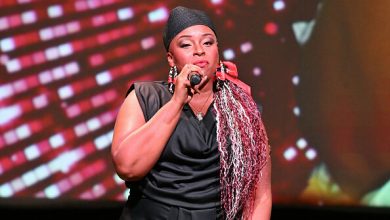How Culture Wireless Co-Founder William ‘Bam’ Sparks Is Bridging The Digital Divide Through Community Ownership


Culture Wireless is on a mission to bring affordable internet, better coverage, and community ownership to places that need it most.
When the Department of Government Efficiency (DOGE) rescinded millions in federal broadband funds, it threatened to leave Georgia’s underserved communities further behind, according to The Current. For Culture Wireless, a Black-owned internet provider co-founded by William “Bam” Sparks (chief marketing officer), the impact was deeply personal.
“Personally, it affects me because it hinders people in my community from having access,” Sparks told AFROTECH™ in an interview. “The government doesn’t understand how deeply it impacts certain neighborhoods, especially on the west side of Atlanta, where there’s a digital red line and limited access to basic tools.”
For Sparks, the funding cuts weren’t just setbacks — they sparked a renewed drive to build solutions beyond traditional telecom and government efforts. Culture Wireless was created to close this digital divide with fellow co-founders Al Adjahoe (CEO) and Jerome Howard (chief operating officer).
Building What The Government Didn’t
The DOGE funding cuts did more than change policy. They pulled the plug on real people’s futures, Sparks says. Across Georgia, many communities depended on federal dollars for broadband, better cell coverage, and cybersecurity. McIntosh County, where one-third of residents are Black, was among them, per Data USA.
“That program was going to help families and certain communities afford devices, digital literacy tools, and internet bills,” Sparks said. “So, it’s unfortunate.”
Beyond his ties to Atlanta, Sparks sees national implications. “It hurts the entire country because we’re behind as far as digital development goes,” he said. “Every day, I feel like there’s a new AI tool or advancement — and if we don’t have the resources to prepare ourselves, then we’re just going to put ourselves further behind.”
Culture Wireless was born from that urgency. While attending an esports event at Atlanta University Center, Sparks realized that many students, despite being surrounded by fiber lines, still couldn’t afford to connect. That insight sparked a larger mission: create a telecom solution that centers underserved communities.
In 2023, the company became the internet service provider for the Atlanta BeltLine, providing free or low-cost connectivity along the 22-mile trail system, according to the Atlanta Voice. “Our mission is to provide access for everyone,” Sparks said. “We want to put our community first.”
Community-Funded Connectivity
Culture Wireless isn’t just connecting people — it’s inviting them to co-own the network that’s powering their lives. After completing a 16-week accelerator program in 2023 with Andreessen Horowitz’s Talent and Opportunity Initiative (A16Z), Sparks returned with a bold idea: skip traditional venture capital and open the door to grassroots investment.
“What I wanted to do from that experience was not necessarily go the VC route,” he explained. “I wanted to create an opportunity for our community.”
The company launched an equity crowdfunding campaign on WeFunder during Juneteenth, June 19, 2025, offering shares to the public with a minimum investment of just $100. The goal? Allow everyday people to build wealth alongside the company’s growth.
“Our valuation is right at about $10 million, so what we wanted to do was say, ‘OK, how can we allocate 10% equity to the community?’” Sparks said. “Even if it’s a small stake, it matters.”
He points to the Mint Mobile acquisition as proof of concept. “If we were to exit like Mint, for example, that did a $1.35 billion deal, that $100 would bring you $135,000. Just imagine how that could help build generational wealth in the Black community.”
Sparks envisions two core paths for growth. The first is scaling Culture Wireless’ mobile subscriber base to 2 million to 3 million customers and positioning for a merger or acquisition. The second is expanding local broadband infrastructure through last-mile networks and fiber-to-home solutions.
“At the end of the day, what’s going to have more culture is the solution that we’re creating, which has the potential to shift the telecom industry completely,” he said.
How Culture Wireless Is Rewriting The Narrative
In a tech landscape where venture funding for Black founders is shrinking, as AFROTECH™ previously reported, Culture Wireless is rewriting the playbook.
“My long-term vision is to create a model where we can all support each other,” Sparks told AFROTECH™. “My ultimate goal is to stop giving away our culture for free — and to invest back in our culture.”
He continued, “I went to an HBCU (Historically Black Colleges and Universities) in a rural area. I know firsthand how this affects students and families in places like Albany, Georgia, or certain parts of Atlanta. I would want those people who cut the program to come and walk those streets, talk to the community, and understand what they’ve done. They’re so disconnected from the day-to-day reality. They need to experience it themselves to truly grasp how much harm they’ve caused.”
And Sparks has one more message for the community: take action.
“Go to wefunder.com/culturewireless and support,” he said. “I want our community to understand — this isn’t a donation. It’s an investment. For most of us, it’s our first one. So get in early, and learn how you can grow your capital.”
He’s already thinking ahead to what comes next. “Eventually, I want to bring in other vetted Black-owned infrastructure companies to do the same thing. Rinse and repeat. That’s how we uplift our community.”
With the federal government retreating from its promises, Sparks is stepping forward. His solution doesn’t just close the digital divide — it puts ownership of the future into the community’s hands.




